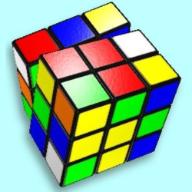what is a prime number?
2008-05-05 4:06 pm
回答 (9)
2008-05-05 4:09 pm
✔ 最佳答案
A prime number is a positive integer (2 or greater) that has exactly two factors, 1 and itself.Examples are:
2, 3, 5, 7, 11, 13, 17, 19, 23, 29, 31, etc.
2008-05-05 11:09 pm
A prime number is a positive integer with exactly two factors, 1 and itself.
The first few prime numbers are 2, 3, 5, 7, 11
The first few prime numbers are 2, 3, 5, 7, 11
2008-05-05 11:18 pm
a number only divisible by 1 and itself
參考: Angel Pie brain
2008-05-05 11:18 pm
A prime number is a number divisible only by itself and 1. One itself is not considered a prime number so 2 is the smallest, and only even, prime, followed by 3,5,7,11,13,17,19,23,... Excuse me if I don't finish, there is an infinite number of primes!
2008-05-05 11:14 pm
Prime Number
In mathematics, a prime number (or a prime) is a natural number greater than 1 which has exactly two distinct natural number divisors: 1 and itself. An infinitude of prime numbers exists, as demonstrated by Euclid around 300 BC. The first thirty prime numbers are:
2, 3, 5, 7, 11, 13, 17, 19, 23, 29, 31, 37, 41, 43, 47, 53, 59, 61, 67, 71, 73, 79, 83, 89, 97, 101, 103, 107, 109, 113.
In mathematics, a prime number (or a prime) is a natural number greater than 1 which has exactly two distinct natural number divisors: 1 and itself. An infinitude of prime numbers exists, as demonstrated by Euclid around 300 BC. The first thirty prime numbers are:
2, 3, 5, 7, 11, 13, 17, 19, 23, 29, 31, 37, 41, 43, 47, 53, 59, 61, 67, 71, 73, 79, 83, 89, 97, 101, 103, 107, 109, 113.
參考: Prime Number
http://en.wikipedia.org/wiki/Prime_number
2008-05-05 11:13 pm
a number that is not divisible by any number other than itself and 1
2008-05-05 11:12 pm
a number that only is divisible by 1 and itself
2008-05-05 11:12 pm
A prime number is an integer greater then 1 that is only divisible by itself and 1.
Hope this helps!
Hope this helps!
2008-05-05 11:09 pm
A number that is divisible into integers only by 1 and itself. 1 is NOT a prime number. A few examples are 2, 3, 5, 7, 11, 13, 17, 19 . . .
收錄日期: 2021-05-01 10:27:46
原文連結 [永久失效]:
https://hk.answers.yahoo.com/question/index?qid=20080505080621AATxDoU


